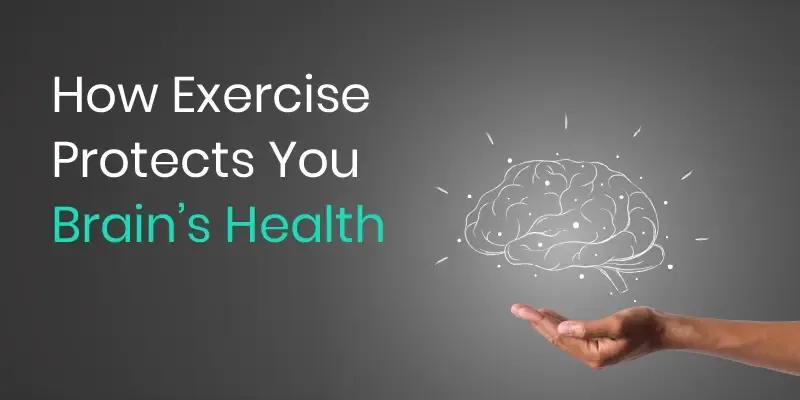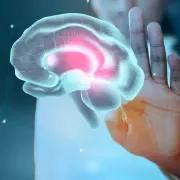How Exercise Protects Your Brain’s Health
In This Article
How Exercise Protects Your Brain’s Health
Pooja
Updated on June 10, 2024
Medically verified by Dr. Arya
Fact checked by Dr. Pournami

Neurology
10 min read
The brain is one of the most significant organs in our human body. Regular exercise helps our muscles, heart and other organs to function properly.
Likewise, exercise is beneficial for our brain health too.
Are you confused about how to exercise to improve brain health?
Well, Karetrip is here to help you with this. In this blog, we will go into detail on ways we can use to improve the overall well-being of our brain.
Advantages of Exercise
Regular exercising may improve your reasoning ability . You will be able to maintain emotional stability, relieve stress , and improve your memory if you exercise regularly.
Let us now look at the main advantages that can be obtained from physical activities:
-
Exercise improves memory and increases its volume: The authors claim that physical exercising enhances an organism’s memory and capacity for remembering new information. This process induces a synthesis of BDNF that promotes neuronal outgrowth which is necessary for the formation of synapses.
-
Enhances blood flow to the brain: More oxygen and nutrients are supplied into brain cells as a result of increased blood circulation to the brain. Consequently, the brain becomes more active and this can help in heightening cognitive processes.
-
Reduces Inflammation: Routine exercises could protect against diseases such as Alzheimer’s or Parkinson’s by reducing inflammation.
-
Lowers stress hormone levels: It helps reduce cortisol, which is a stress hormone. An increase in cortisol results in decline in memory function along with poor cognitive function too.
-
Supports neuroplasticity: It is the capacity of the brain to generate fresh synaptic connections. Regular physical activity facilitates proliferation of neurons and tissue growth crucial for education and memory. Exercise will keep the brain young and adaptable as a result. Thus, exercising can preserve cognitive function in old age.
-
Encourages Cellular Fitness: Developing circulation decreases chance of stroke or other cardiovascular problems by enhancing cerebral blood flow and oxygen concentrations
-
Safeguards against brain ageing and damage: As we get older, the brain may change in ways that affect our ability to think clearly, such as shrinking certain parts.
-
Alleviates anxiety: Regular exercise can help reduce anxiety while boosting mood, which is beneficial for overall healthiness as well as mental wellness.
What Kind of Exercises Are Good ?
There are some studies which show that aerobic exercises such as running and cycling increase the capacity of oxygen and help in smooth transport. The number of blood vessels and synapses are boosted, increase in brain volume and decrease age-related brain atrophy.
There are many effects in brain areas such as particularly in thinking and problem solving has also been reported. There is a constant increase in the number of nerve cells and there is an increase in proteins that help these neurons survive and thrive.
Cognitive improvements have been demonstrated with other forms of exercise such as a mind body exercise which has low intensity like yoga and tai chi.
How Much Activity Do I Need ?
Activities which are of moderate intensity such as jogging, biking, swimming and playing sports can be done at least 150 minutes per week.
Any exercise that makes the heart beat faster can be done. Muscle strengthening activities should also be done 2 days per week.
Some of the muscle strengthening activities which can be done are Lifting weights, push-ups or sit-ups, using resistance bands and climbing stairs.
 10 min read
10 min read10 Neurological Benefits of Exercise - Positive Psychology
 10 min read
10 min readChoosing the Right Neurology Hospital: Factors to Consider for Patients and Families
 10 min read
10 min readTop 10 Neurology Hospitals in India
Get a Callback Now
What Happens in Your Body While Exercising?
- First Five Minutes: This stage is often known as the priming stage. Here the brain receives an instant boost. Heart rate will rise progressively and you will start breathing deeper and more blood will flow to the muscle.
As more blood circulates throughout the body, the brain obtains more oxygen and nutrients.
- First half-hour: When you do moderate exercise for about 20-30 minutes, your brain will produce a feel-good hormone which is known as endorphins.
It will also produce endocannabinoids which are substances that enhance our mood, memory and stress response. They will also increase the motivation to workout again.
- One hour following exercise: A high-intensity interval training (HIIT) workout creates brain-derived neurotrophic factor (BDNF) which is an important chemical that helps in brain development and function, including memory, cognition, concentration, attention and affect.
Although BDNF production declines as we age, studies have shown that it increases following an HIIT session.
- Two to four hours following exercise: After two to four hours of activity, some remarkable neurotransmitters become active.
These miraculous molecules include serotonin, dopamine, and norepinephrine, which act as messengers, carrying messages and information between neurons.
Serotonin is a mood booster. It aids in the management of brain circuits that are critical for sleep, mood, hunger, and other functions.
It improves cognition and the ability to think through challenging situations while also controlling impulsive behaviour.
Regular exercise has long-term advantages, including increasing good hormones and reducing stress chemicals. Here's what occurs in the long run when you begin a decent fitness routine:
- Following 12 weeks of regular exercise: Regular exercise increases oxygen and nutrition delivery, which aids in the creation of new neurons. After three months of frequent aerobic or HIIT workouts, the brain continues to release BDNF.
A favourable impact on memory-related brain size begins as well.
- More than three months of consistent activity: At this stage, the benefits of exercise become apparent. Your brain and body begin to improve your overall metabolic health.
Insulin-like growth factor-1 (IGF-1) is a hormone that regulates blood sugar levels and increases the sensitivity of bodily tissues to insulin. According to research, having poor metabolic health increases the chance of cognitive impairment.
Better metabolic health leads to better neurological and brain function.
- Longer life and health span: Regular exercise protects against age-related brain shrinkage, lowers the risk of cardiovascular disease, improves overall quality of life, physical fitness, memory, ability to connect with people, especially in stressful situations, and boosts confidence.
Collectively, these prolong your health and lifespan.
FAQs
1. How can I keep my mind sharp?
To improve your cognitive abilities and to improve the functions of working memory , executive function and spatial reasoning , one can practise brain exercises such as Sudoko , scrabble , brain teasers and mazes.
2. How do I exercise my mind every day?
Make time for brain workouts as part of your schedule. Incorporate some form of physical activity into your morning routine like doing crossword puzzles during breakfast or reading a book before going to sleep at night; Other practices include getting enough rest, eating properly or taking good care of oneself.
3. What exercises make your brain remember better?
You could try playing memory games with cards that target short-term memory improvement, working on jigsaw puzzles for bettering one’s working memory or simply practising new things everyday
Brain exercise has significant effects on overall health and well-being of the individual.
Aerobic exercise, jogging, and swimming are advised to be done at a moderate intensity .
One should do exercise at least 150 minutes per week and muscle strengthening activities for at least 2 days in a week.

